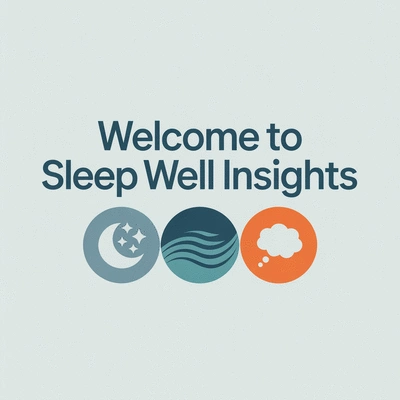What if a simple supplement could help you reclaim restful nights? The world of over-the-counter sleep aids can be overwhelming, but understanding your options can empower you to make the right choice for your sleep health.
What You Will Learn
- Types of OTC Sleep Aids: Discover the main categories, including antihistamines, melatonin, and herbal supplements.
- Mechanisms of Action: Learn how different sleep aids work in the body to promote sleep and relaxation.
- Melatonin's Role: Understand how melatonin regulates sleep patterns and when it is beneficial to use.
- Safety and Effectiveness: Gain insights into the safety, potential side effects, and evidence supporting OTC sleep aids.
Understanding OTC Sleep Aids: Types and Their Mechanisms
This visual outlines the main categories of over-the-counter sleep aids and how their active ingredients help promote sleep.
Antihistamines (e.g., Diphenhydramine)
Mechanism: Block histamine receptors in the brain, inducing drowsiness.
Melatonin
Mechanism: Naturally occurring hormone that signals the body it's time to sleep, resetting the internal clock.
Herbal Supplements (e.g., Valerian Root)
Mechanism: May affect neurotransmitters in the brain that promote relaxation.
Key Considerations
- Effectiveness: Varies per person.
- Side Effects: Drowsiness, dry mouth, dizziness.
- Consultation: Always with a healthcare provider.
Understanding Over-the-Counter Sleep Aids: What You Need to Know
Have you ever wandered down the pharmacy aisle, overwhelmed by the variety of over-the-counter (OTC) sleep aids? You're not alone! Many people face this dilemma, trying to find the right solution for their sleepless nights. Let’s break down what OTC sleep aids are and explore the different types available to you.
Defining OTC Sleep Aids: Types and Categories
OTC sleep aids can be grouped into several categories, based on their active ingredients and how they function in the body. Here are the most common types:
- Antihistamines: Medications like diphenhydramine are popular choices that can make you feel drowsy.
- Melatonin: This hormone regulates your sleep-wake cycle and is available in supplement form.
- Herbal Supplements: Natural options such as valerian root and chamomile are used by many to promote relaxation and sleep.

It’s essential to understand the differences between these options, as each has unique effects and suitability. For instance, while antihistamines can be effective for short-term use, they may not be ideal for long-term sleep issues. For more in-depth information on the various types and their uses, consider consulting resources like the Sleep Foundation's guide to OTC sleep aids.
The Science Behind OTC Sleep Aids: How They Work
When you take an OTC sleep aid, it’s helpful to know how it works in your body. Let’s explore the mechanisms of action for these sleep aids:
- Antihistamines: These block histamine receptors in the brain, which can lead to drowsiness.
- Melatonin: This naturally occurring hormone signals to your body that it’s time to sleep, helping to reset your internal clock.
- Herbal Supplements: Ingredients like valerian root may affect neurotransmitters in the brain that promote relaxation.
Understanding these mechanisms can help you choose the right sleep aid based on your personal needs. Remember, not all sleep aids work the same way for everyone, and their effectiveness can vary. The FDA provides historical context on OTC nighttime sleep aid drug products, shedding light on their regulatory journey.
The Role of Melatonin in Sleep Regulation
Melatonin plays a crucial role in regulating our sleep patterns. It's a hormone that our body produces naturally in response to darkness, signaling it’s time to wind down. Many people choose to take melatonin as an OTC sleep aid to help establish a more consistent sleep schedule.
Using melatonin supplements can be particularly beneficial for those facing situational sleep disruptions, such as traveling across time zones or adjusting to new work hours. However, while melatonin can be a great tool, it's important to use it wisely, especially if you're considering integrating it into your routine for long-term use.
Interactive Poll: Your Sleep Experience
Have you ever tried an OTC sleep aid? We'd love to hear about your experience! Please select one of the options below:
Frequently Asked Questions About OTC Sleep Aids
- What are the main types of over-the-counter (OTC) sleep aids?
- The main types include antihistamines (e.g., diphenhydramine), melatonin, and various herbal supplements like valerian root and chamomile.
- How do antihistamines help with sleep?
- Antihistamines work by blocking histamine receptors in the brain, which leads to drowsiness and helps induce sleep.
- What is melatonin and how does it affect sleep?
- Melatonin is a naturally occurring hormone that signals to your body that it's time to sleep, helping to regulate your sleep-wake cycle and reset your internal clock.
- Are herbal supplements effective for sleep?
- Herbal supplements like valerian root and chamomile are used by many to promote relaxation and sleep, often by affecting neurotransmitters in the brain. Their effectiveness can vary among individuals.
- What are the potential side effects of OTC sleep aids?
- Common side effects can include drowsiness, dry mouth, and dizziness. It's important to be aware of these and consult a healthcare provider if concerns arise.
- When should I consult a healthcare provider before using an OTC sleep aid?
- It is always recommended to consult a healthcare provider before starting any new sleep aid, especially if you are pregnant, elderly, taking other medications, or have underlying health conditions. This ensures safe and appropriate usage.
Summarizing the Safety and Effectiveness of OTC Sleep Aids
As we dive into the world of over-the-counter (OTC) sleep aids, it's crucial to recap some key points about their effectiveness, safety, and proper usage. While these aids can offer relief, understanding their strengths and limitations is essential for making informed choices. Here’s a summary of what we’ve covered:
- Types of OTC Sleep Aids: From antihistamines like diphenhydramine to natural supplements such as melatonin, various options are available to help manage insomnia.
- Evidence of Effectiveness: Clinical studies have shown that these aids can be beneficial, though results may vary from person to person.
- Potential Side Effects: Common side effects include drowsiness, dry mouth, and dizziness. It's vital to weigh these against the potential benefits.
- Safety Considerations: Always consult a healthcare provider, especially if you’re pregnant, elderly, or taking other medications. For more detailed safety information and guidelines on proper use, resources like the CDC's insights on fatigue management and sleep aids can be valuable.

In conclusion, OTC sleep aids can be a useful tool in your sleep health journey, but they require careful consideration and responsible use. Always keep in mind that they work best when combined with good sleep hygiene practices!
Engaging with Your Sleep Health: Next Steps
Now that you have a clearer understanding of OTC sleep aids, it’s time to assess your personal sleep needs. Each individual’s journey is unique, and I encourage you to consider if a sleep aid might be right for you. However, before starting any new sleep aid, it's always best to consult with your healthcare professional. They can help guide you based on your specific situation and history.
At Sleep Well Insights, we’re committed to providing you with the knowledge and resources to enhance your sleep quality. If you have any questions or would like more information, don’t hesitate to reach out or explore our other articles. Together, we can work towards achieving those restful nights you deserve!
Recap of Key Points
Here is a quick recap of the important points discussed in the article:
- Types of OTC Sleep Aids: Common categories include antihistamines, melatonin, and herbal supplements, each with unique effects.
- Mechanisms of Action: Understand how each type works, such as antihistamines blocking histamine receptors and melatonin signaling sleep readiness.
- Safety Considerations: Always consult a healthcare provider before using sleep aids, especially for long-term use or if you have underlying health conditions.
- Potential Side Effects: Be aware of common side effects, including drowsiness and dizziness, and weigh them against the benefits.
- Integrating Good Sleep Hygiene: OTC sleep aids are most effective when combined with healthy sleep practices.










